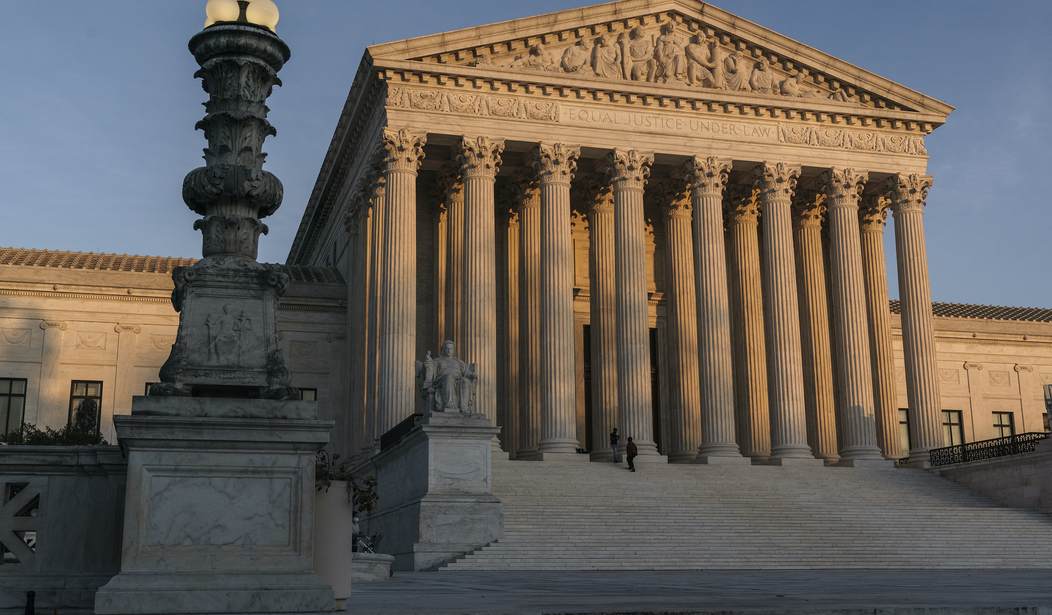All of the liberals that were fretting over the belief that the addition of Amy Coney Barrett to the Supreme Court would result in new laws making the ownership of tanks and bazookas mandatory are probably breathing a sigh of relief this week. The court was handed three chances to weigh in on the ability of states to permanently forbid gun ownership by individuals convicted of various minor offenses during this session. Without offering any reason or comment, they declined to review all three of the cases. These decisions leave standing lower court results that found the laws to be constitutional. It’s a curious and disappointing turn of events, particularly when you consider that several of the justices have been quite vocal in calling for new Second Amendment cases to be heard. (USA Today)
The Supreme Court on Monday declined to take up three challenges to a federal ban on gun ownership for people convicted of nonviolent crimes, surprising Second Amendment advocates who hoped the court would chip away at the restriction.
By not taking the appeals, the nation’s highest court let stand a series of lower court rulings that prohibited people convicted of driving under the influence, making false statements on tax returns and selling counterfeit cassette tapes from owning a gun.
The decisions Monday, which were handed down without explanation, are the latest in a series of instances in which the Supreme Court has skirted Second Amendment questions.
It’s been nearly a dozen years since the last time the Supreme Court took up a significant Second Amendment case. (McDonald v. City of Chicago) Since that time, the court has only swung further in the conservative direction, so why are they still so gun-shy (pun intended) about taking on these questions? Were the specific issues involved not sufficiently substantive for the majority or were the challenges lacking in merit?
When it comes to permanently removing a citizen’s Second Amendment rights, we’re not talking about an all-or-nothing proposition. It’s long been established that you can disqualify yourself from the right to own a firearm by proving that you cannot be trusted to safely and responsibly use one. If you engage in any sort of gun crime, from robbery to assault or even murder, you’re put permanently on Santa’s naughty list. But some of the charges being described in the three rejected cases range far afield from those types of illegal actions.
The first case involved a challenge by a Pennsylvania man who pleaded guilty to driving while under the influence back in 2005. He had his right to purchase or own a firearm suspended permanently. We can all probably accept the claim that driving while intoxicated is an example of reckless behavior that could result in injury or death to another person. But recklessness in and of itself doesn’t really define a person as being willfully malicious and prone to intentional acts of violence. I suppose one could make the argument that a person who is reckless with an automobile might also behave irresponsibly with a loaded weapon, but that still seems like a bit of a stretch.
The other two cases are even more bizarre. One involves a woman from Pennsylvania who made a false statement on her tax returns. The other is a guy who was convicted of making and selling bootleg cassette music tapes in the 1980s and has been barred from gun ownership ever since. Where is the connection between a person trying to shave a few bucks off of their tax bill and the risk of committing a violent gun crime? We’re talking about a literal example of white-collar crime here. And bootlegging cassettes? Will Pennsylvania next permanently ban gun ownership for people convicted of jaywalking and loitering?
Let’s hope this pattern of refusals doesn’t continue. There are some other significant Second Amendment cases coming down the pike this year, including one challenging a New York State law forbidding the carrying of firearms outside the home unless the owner has a “special need for protection.” That’s one that is crying out for a resolution and the current court should be able to come through for us.








Join the conversation as a VIP Member